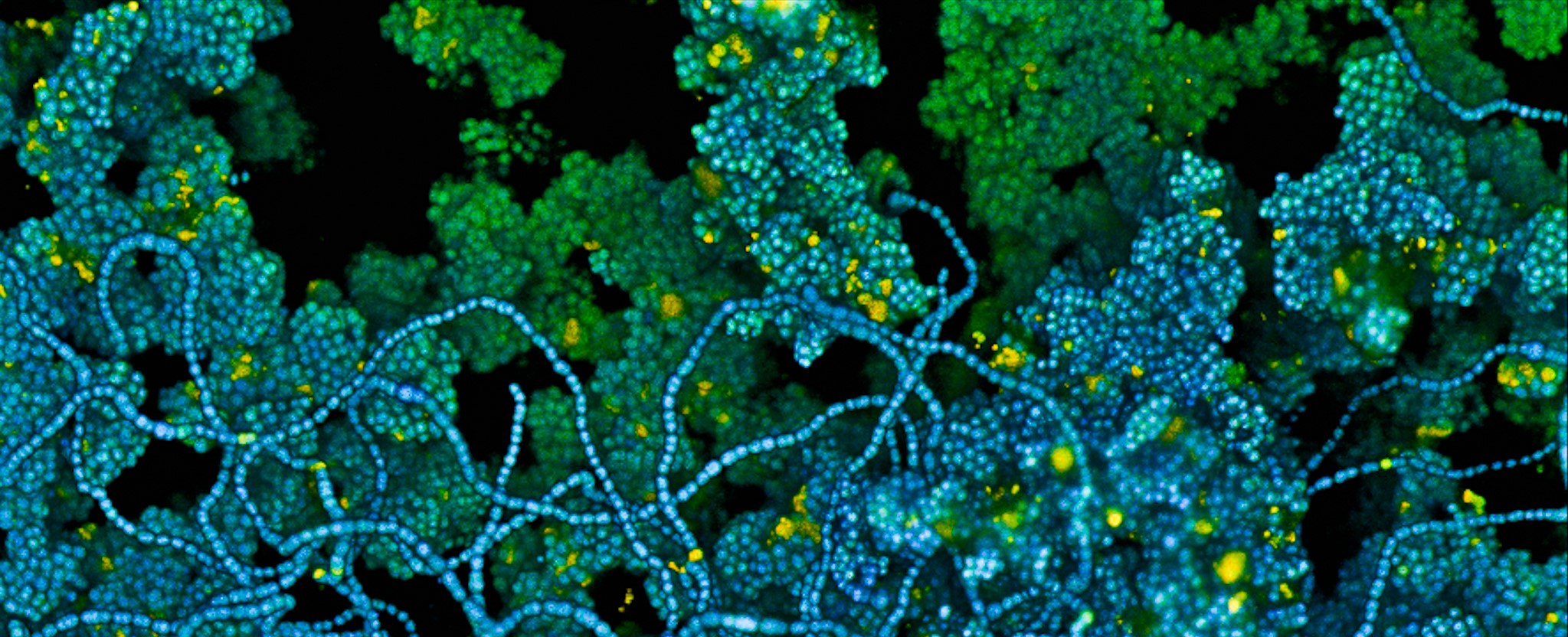Pathogenesis of biofilm-associated infections

Enterococci are a leading cause of hospital-acquired infections (HAIs), where they are frequent opportunistic pathogens of the urinary tract and wounds. These infections are often biofilm-associated, and thus, inherently more tolerant to antimicrobials and resistant to immune clearance. In addition, Enterococci are immunosuppressive, further complicating host clearance. The increasing prevalence of multidrug-resistant strains compounds treatment challenges, spurring efforts aimed at identifying novel intervention strategies to limit infection. Despite the prevalence of Enterococci in HAIs, its strategies for surviving and persisting in the host during infections are largely unknown. There is an urgent need to understand the host-pathogen interactions underlying Enterococcal infections because they will only become more prevalent as the global population ages and the incidence of correlated comorbidities continues to increase.
Our long-term goal is to identify, define, and harness mechanisms by which E. faecalis modulates and responds to the local host environment to promote infections in vivo. Historically considered an extracellular microbe, we have discovered that E. faecalis can also persist and replicate intracellularly. At the same time, extracellular E. faecalis can actively suppress macrophage and neutrophil activation. Our short-term goal is to identify the mechanisms by which E. faecalis suppresses and subverts host immune responses to promote intracellular survival and persistence, and to determine how intracellularity contributes to infection and disease progression in the mammalian host.
Expertise:
- Animal models of bacterial biofilm-associated infection: wound infection, urinary tract infection, antibiotic-induced gut infection, infectious endocarditis
- In vitro infection models for macrophages, neutrophils, and epithelial cells
- Bacterial genetic manipulation
- Polymicrobial infection models
Key publications:
- da Silva RAG, Tay WH, Ho FK, Tanoto FR, Chong KKL, Choo PY, Ludwig A, Kline KA. (2022) Enterococcus faecalis alters endo-lysosomal trafficking to replicate and persist within mammalian cells. PLoS Pathogens 18(4): e1010434. DOI 10.1371/journal.ppat.1010434.
- Chong K, Tay WH, Janela B, Yong AMH, Liew TH, Madden L, Keogh D, Barkham T, Ginhoux F, Becker D, Kline KA. (2017) Enterococcus faecalis modulates immune activation and slows healing during wound infection. Journal of Infectious Disease Dec 19, 216(12):1644-1654.
- Tien B, Goh S, Chong K, Tagore S, Holec S, Dress R, Ginhoux F, Ingersoll MA, Williams RB, Kline KA. (2017) Enterococcus faecalis promotes innate immune suppression and polymicrobial catheter-associated urinary tract infection. Infection & Immunity Nov 17;85(12) e00378-17.
- Kao HNP and Kline KA. (2019) Dr. Jekyll and Mr. Hide: How Enterococcus faecalis subverts the host immune response to cause infection. Journal of Molecular Biology. Jul 26;431(16):2932-2945.
- Kline KA, Schwartz DJ, Gilbert N, Lewis AL. (2013) Impact of host age and parity on susceptibility to severe urinary tract infection in a murine model. PLoS ONE 9(5): e97798.
